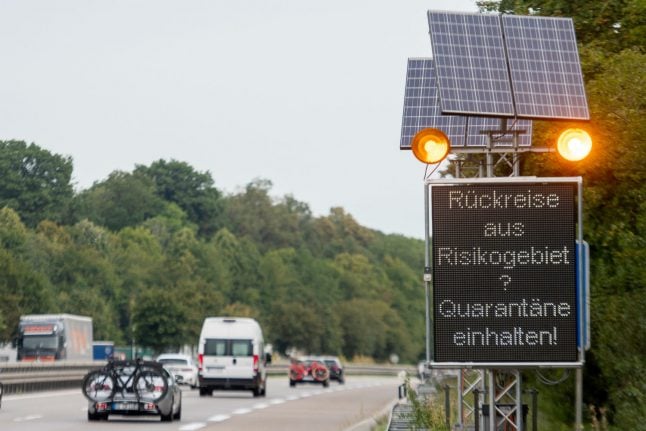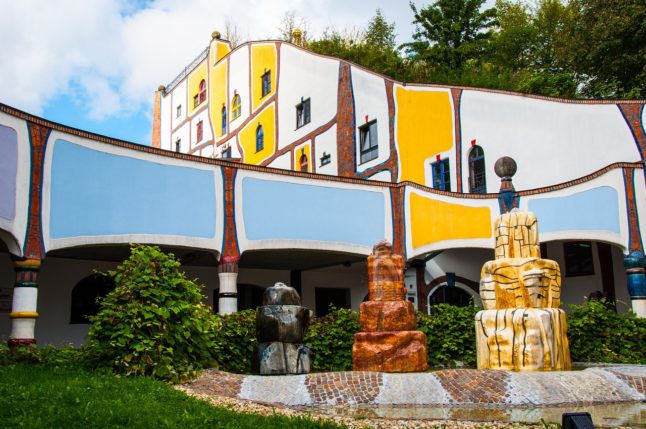The new regulation came into force in Germany on Sunday, although some areas had already introduced the system.
The rules were decided on by the federal government but each state is implementing them. That's why there may be regional variations across the 16 states.
What should I know before entering?
If you have stayed within a non-German risk zone within the last 10 days prior to entering Germany (the Robert Koch Institute provides an updated list here of risk areas), you have to register online prior to entry by filling in information on this site: www.einreiseanmeldung.de.
Once you have provided all the necessary information, you will receive a PDF file as confirmation. Your carrier will check whether you can present a confirmation before you can travel.
If, in exceptional cases, it is not possible to make a digital entry, you will have to fill in a replacement declaration on paper instead.
READ ALSO:
- Can I travel in Germany in November?
- Seven things you need to get right if you're travelling to Germany from a risk area
What about quarantine and testing?
Previously, you had to quarantine for 14 days when arriving in Germany form a risk area. However you were able to get a test on arrival, and you'd be released from the quarantine if the test came back negative. If it was positive, you'd continue the quarantine on the orders of health officials.
Now, the new general rules on quarantine are:
- A stay in a 'risk zone 'means you stayed in the area concerned at any point within 10 days prior to entry to Germany
- After arriving at your destination in Germany, you must self-isolate at home for 10 days (this is mandatory)
- You must also report your arrival into Germany immediately to the responsible health authority (Gesundheitsamt)
- If no other grounds for exception apply (such as if you are an essential worker) you may only be released from the obligation to quarantine at home – no earlier than five days after entering Germany– if you provide proof of a negative test result. So a test can be taken five days into the quarantine at the earliest.
- Even if the test is negative, some states may order or urgently recommend that you repeat the test after five to seven days due to the potentially long incubation period of the virus
The test is free of charge for people entering the country from risk areas within 10 days after entering, until December 1st, the government says.
You can find out where you can take a test near your home by calling 116 117 or online at www.116117.de. If you would like to be tested by your family doctor, you should call and ask if they are doing the tests beforehand.
It is important to note that you must remain in quarantine until the test result is available.
READ ALSO: Bavaria introduces compulsory Covid-19 testing for commuters
What are the exceptions?
There can be some exceptions to the quarantine rule but check with the state you are travelling to.
Here are some general exceptions (although they could differ from state to state):
- Anyone who can provide an up-to-date medical certificate confirming they do not have coronavirus
- Essential workers (such as doctors, nurses, supporting medical staff and 24-hour care staff)
- People whose stay is due to urgent medical treatment
The regulation also does not apply to people who are travelling through Germany to get to another destination.
However, if you have coronavirus symptoms you are required to report them immediately. For any exceptions, you still have to notify the health authority of your arrival into Germany.
READ ALSO: What are Germany's new quarantine rules after travel?
Remember that during the lockdown, hotels and other overnight accommodation in Germany is not open to tourists.
Here are the coronavirus websites for each state so you can familarise yourself with the rules.
- Corona-Information for Baden-Württemberg
- Corona-Info Bavaria
- Corona-Info Berlin
- Corona-Info Brandenburg
- Corona-Info Bremen
- Corona-Info Hamburg
- Corona-Info Hesse
- Corona-Info Mecklenburg-Western Pomerania
- Corona-Info Lower Saxony
- Corona-Info North Rhine-Westphalia
- Corona-Info Rhineland-Palatinate
- Corona-Info Saarland
- Corona-Info Saxony
- Corona-Info Saxony-Anhalt
- Corona-Info Schleswig-Holstein
- Corona-Info Thuringia
Please keep in mind that this article, as with all of our guides, are to provide assistance only. They are not intended to take the place of official legal advice.



 Please whitelist us to continue reading.
Please whitelist us to continue reading.
Member comments